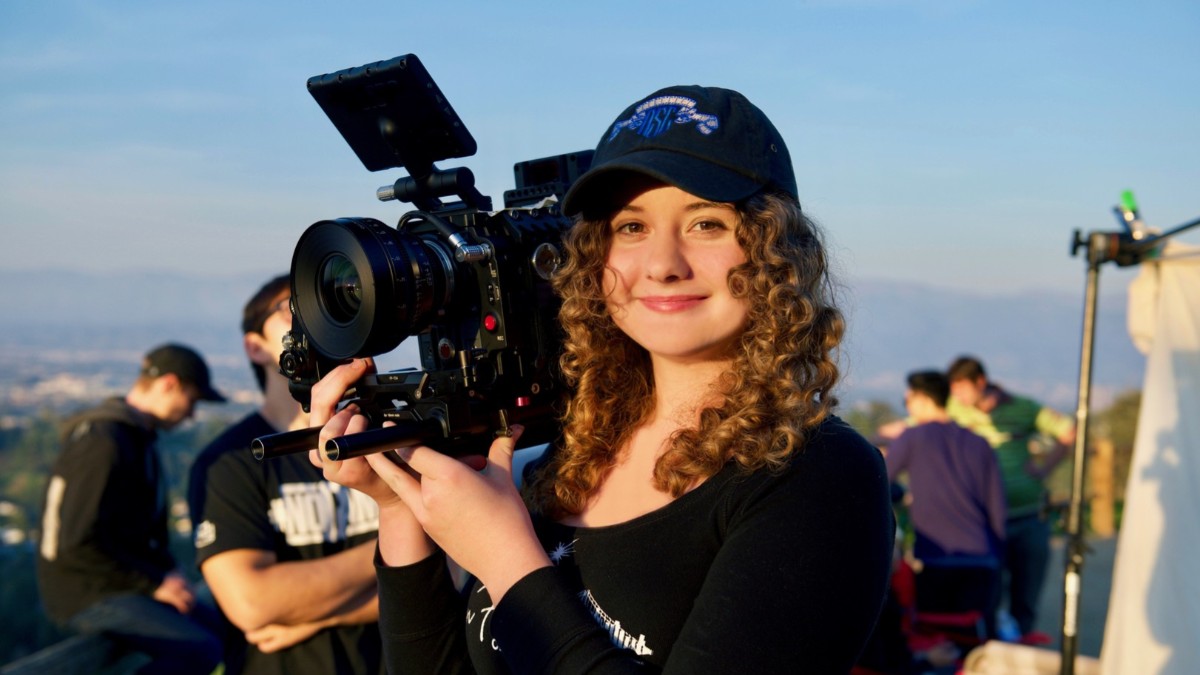
Melody C. Miller has directed and lensed films for Samsung, Sony Pictures, Amazon Prime, and Starz. She has also shot for HBO, Discovery Channel, PBS, Smithsonian Channel, and ITV. Melody has two award-winning feature documentaries titled California’s Forgotten Children and ruth weiss, the beat goddess. Melody C. Miller has over a decade of experience working as a freelance director and cinematographer on hundreds of documentaries, narratives, music videos, and PSAs. “I work as an independent contractor, but also have my own company. Internationally I have shot and produced films in China, the United Kingdom, and all across the United States,” says Melody.
indieactivity: How would you describe your work as a director?
Melody C. Miller (MCM): What I love the most about being a filmmaker is that I can tell different and unique stories around the world and I never have a typical project. I get to learn new things about people, technology, and our planet that inspire me to create a movie about it and preserve that story for generations to come. I work on a variety of different projects from a documentary, narratives, television, commercial, music video, and virtual reality. My roles are generally director/producer, director of photography, or both.
I don’t see it as a job, rather I see it more as a way of life. Since I was 15 years old, I have been making films. And from that moment I always knew I was meant to be a filmmaker, that my films would have meaning in the world. I collaborate with a variety of teams compiled of reliable, fun, and talented artists and technicians who share the mission and values of the projects we create.
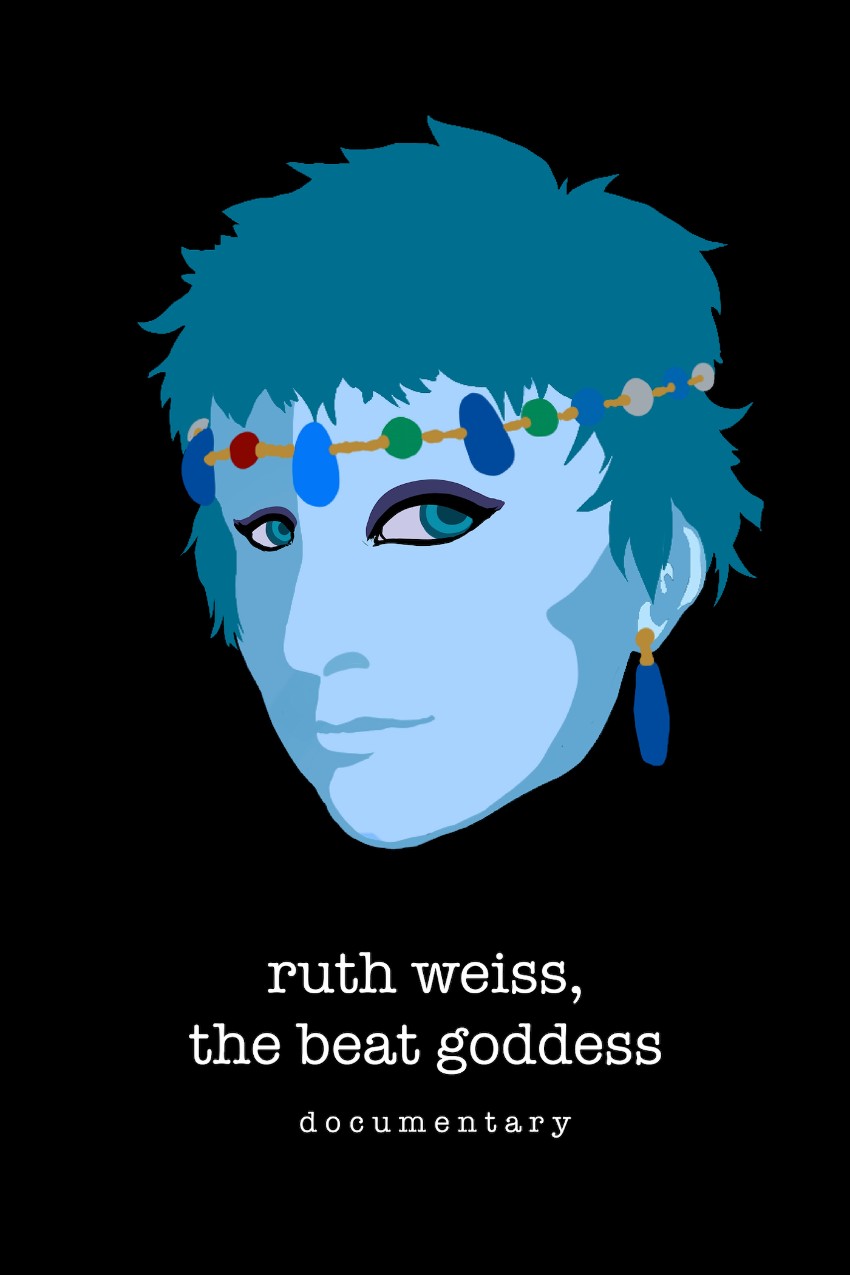
How did you get into directing?
Melody C. Miller (MCM): When I was 15 years old, I would borrow a camera, lights, and sound from the multimedia room at my high school. I would shoot different documentaries about topics I was interested in. Later I saved up enough money from contests to buy my own gear and start my own company. I would reach out to a non-profit that had a cause I really cared about like saving the wolves, helping homeless women and children, space, and science… I would ask if I could make a short documentary for them. And I did. It brought me so much joy to make art that benefited the organizations I cared about and raised awareness among audiences.
How do you choose a project to direct?
Melody C. Miller (MCM): When I choose a project to direct, I have a lot of excitement and passion for the story. I want to learn everything there is to know about it and I begin to visualize it. I think deeply about how to make this film from beginning to end. The visual style, narrative, subjects, budget, funding, locations, crew, audiences, end goals…etc. Feature documentaries are a several-year journey even after you are done. The festivals, promotion, and distribution of the film are a journey in itself that is very hard and exhausting. So I have to decide if this is something I want to commit several years to. I ask myself will it bring me joy? There are a lot of hardships you face while making a film the biggest parts you have to plan for and weigh are how it affects your health, loved ones, and financial sustainability.
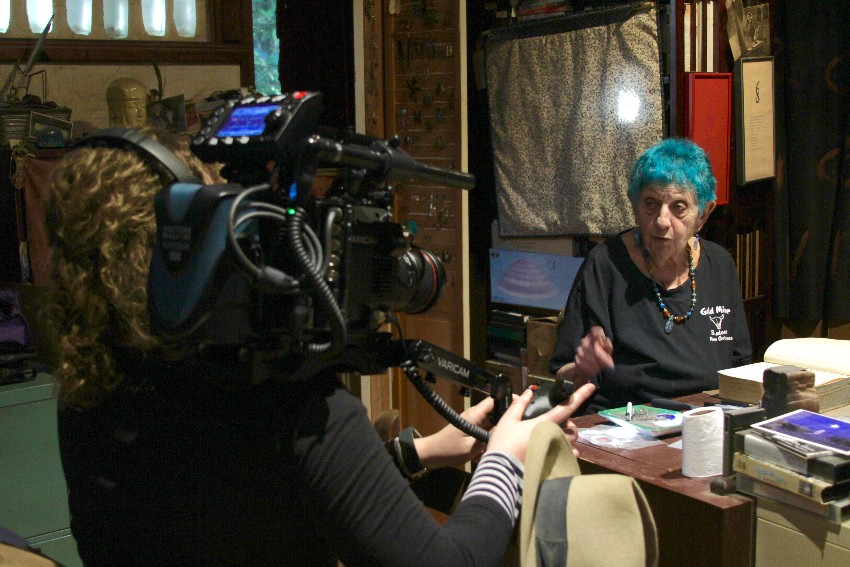
What uniqueness can female directors bring to Film/TV/Cinema?
Melody C. Miller (MCM): The more languages one knows the more friends and good food you will eat. Films are like languages, the more films made by women, non-binary, trans, and different cultural backgrounds the more friends audiences will have and entertained they will be. All directors have different voices, experiences, cultures, and backgrounds. I think it is so exciting to hear new stories and perspectives.
Do you often take courses to increase your craft?
Melody C. Miller (MCM): I went to UCLA film school and had an amazing experience. I studied all the different fields of a film from screenwriting, directing, acting, cinematography, editing, visual effects, animation, and so on. Understanding how the whole filmmaking machine is very important as it helps you communicate clearly what you want as a director and also respect the craft of the other artists or technicians and understand what it takes to make it a reality. I think working in different roles on other productions helps you observe other filmmakers’ mistakes and triumphs that you can implement on your own films.
When you are offered a project, what things do you put in place to deliver a good job?
MCM: As the Director and Producer, I managed the creative visualization while guiding the technical aspects of the production to achieve that vision. In Pre-Production, I made detailed budgets, proposals, schedules, and storyboards, coordinated the cast, booked travel and equipment, and hired a reliable crew.
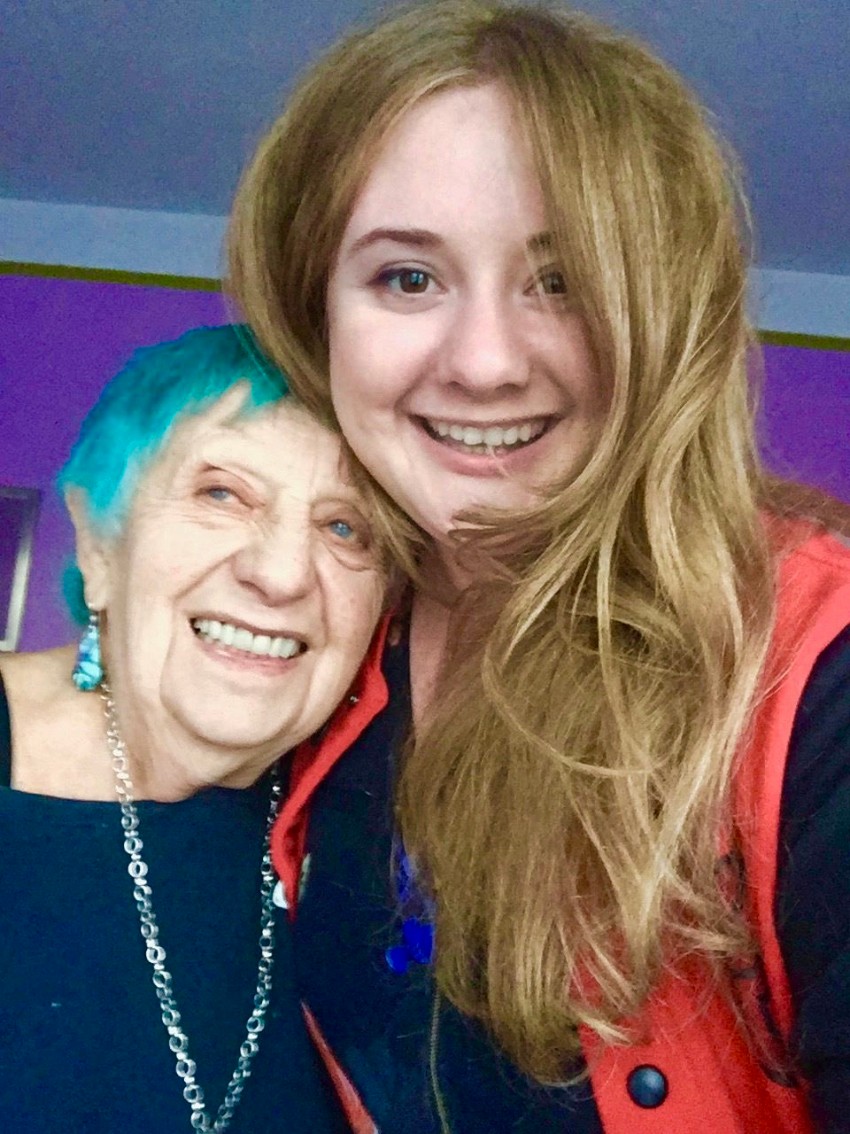
In Production, I conducted interviews and direct a unique style of B-Roll that reflected authentic imagery and storytelling. I developed a strong bond and trust with the interviewees and recorded compelling stories. From the interviews, I transcribe and manage transcribers for hundreds of hours of footage and write scripts.
In Post-Production, I oversee the editing of the film and collaborate with a co-editor to create a structured storyline. Thoughtfully working with the composer, we research and create a unique harmony of music to evoke an emotional evolution of the story. Collaborating with animators, I designed the script, storyboards, and look-books, to create an atmosphere and authentic references to the scenes.
I gather, scan, and gain clearance for historical archives. Then I work with a legal team to create a limited liability company, fair use, copyright, clearances, E&O insurance, and more. I managed accounting and relationships with producers. Marketing-wise, I managed submissions for film festivals, promotional materials, and press to publicize the movie.
Briefly explain your latest work?
MCM: My latest film is about one of the most influential Beat Generation who empowered the world of poetry to jazz and art. “ruth weiss, the Beat Goddess” weaves intimate stories accompanied by visuals of interpretive dance, art, music, and poetry to embody ruth weiss’s oeuvre. The film had it’s World Premiere in Italy at the Asolo Art Film Festival, won Best Documentary at the Peekskill Film Festival, Riverside International Film Festival, Visionary Women In Film Award at the Santa Cruz Film Festival, and was nominated for Best Documentary at ten other film festivals nationwide. ruth weiss was awarded the 2020 Maverick Spirit Award by Academy Award Qualifying Cinequest Film Festival.
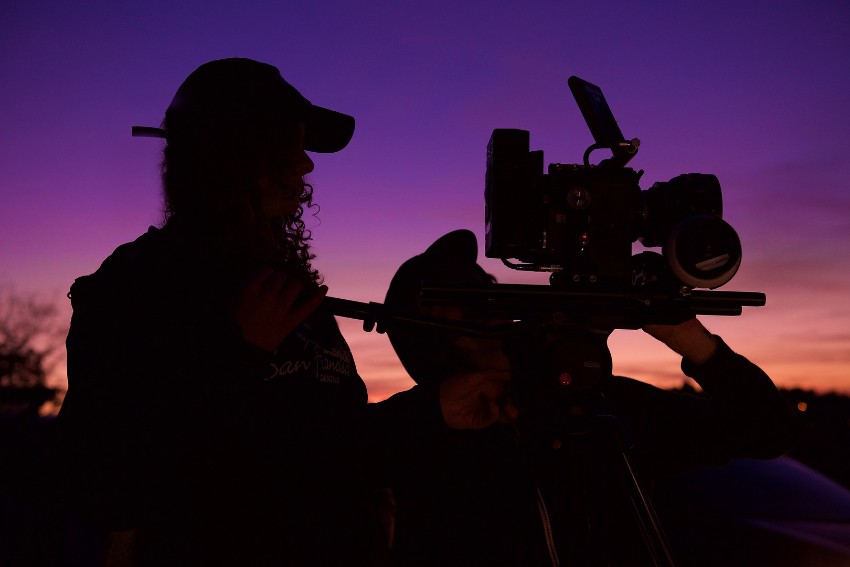
What ‘thing/situation’ helps you during production?
MCM: What helps me in production is having a clear outline and a good plan. I try not to dwell on things. If something doesn’t work out I move forward and find a better solution.
Explain a creative choice you took on the set of a recent production?
MCM: ruth weiss inspired and helped ignite a creative side I hadn’t unleashed before. For example, it is one thing to read ruth’s poetry, it is another to hear and see it performed. When she performed a poem from her Desert Jounal book, I was immediately transported to the top of a sand mountain looking out at the endless golden waves, in the distance I saw a woman dancing with a blue silk fabric that moved like water in the wind. I worked with ballerina Ida Nowakowska and recreated what I imagined in the Mojave desert and intercut the dance with a performance by ruth weiss and her band. Just like how beat poetry and jazz music is
How can filmmakers finance their projects?
MCM: There are a couple of different ways to finance your project:
- Crowdfunding like Kickstarter or IndieGogo with a solid plan.
- Grants – a lot of writing, waiting, and is very competitive
- Self-Funding – save money and plan well
- Learning multiple field positions like how to shoot, direct, and edit your own film.
- Friends and family
- A partnership with another organization that would benefit from investing in your film
- Underwriters – if you screen your film on PBS or broadcast they would pay you money so that the film is “brought to you by ____ organization name”
- Getting funded by a studio
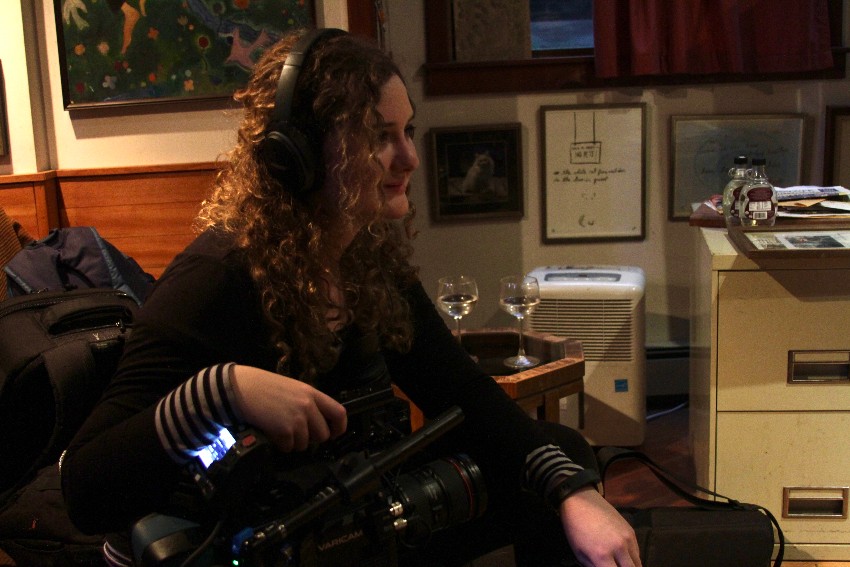
What advice would you give male/female directors around the world?
MCM: Advice I would give to someone trying to get into the film industry regardless of gender is to just start making films and sharing them with others, apply for festivals, upload them to youtube or vimeo, share it on social media, and create a website to showcase your work. Ask to help out on other people’s shoots.
Briefly write about your career?
MCM: Winner of the Women in Film Cinematography Award Fellowship, I have lensed films for various genres, such as the action-packed feature Dimensional Shift, starring Terell Tilford and Victoria Platt, for director Amber Sharp. #whereisbeauty, an art noir film starring singer Goapele, directed by Angela McCrae, premiered at the Cannes Pan African Film Festival and won Best Cinematography Idlewild International Film Festival.
In the documentary world, I collaborated with director Alexis Kadey, whose human rights film Crowning Change premiered at the Toronto LGBT Film Festival and won Best Documentary at the Los Angeles Film Awards. Melody traveled across the country and captured breath-taking images and human stories for the documentary series On Common Ground dedicated to protecting the National Parks. I documented scenes for the STARZ series, Seduced: Inside The NXIVM Cult, directed by Cecilia Peck, about women branded and forced into sexual slavery. During the pandemic, I worked as a contributing cinematographer on this new HBOMax documentary series called “Not So Pretty” directed by Academy Award Nominees Kirby Dick and Amy Ziering.
Watch Official Trailer for ruth weiss, the beat goddess Documentary directed by Melody C. Miller
Currently airing on PBS, my first directed feature, Califonia’s Forgotten Children, follows a diverse group of resilient survivors who have overcome commercial sexual exploitation as children and are changing the world by ensuring no child is forgotten. Invited by Vice-President Kamala Harris, the film screened on Capitol Hill at the United States Senate in 2019, encouraging policymakers to create and implement laws and policies to combat trafficking. The film also screened at the United States of Women Summit, featuring guest speaker former First Lady Michelle Obama in 2018. The film won Best Documentary at the Soho International Film Festival and won numerous film awards at nineteen other film festivals worldwide.
I collaborated on screenings with 100+ organizations from the government, foster care systems, juvenile detention facilities, crisis centers, tech companies, and healthcare organizations to prevent these injustices from continuing. The documentary helped fundraise for safe-homes, crisis centers, and direct services for victims of commercial sexual exploitation, sexual assault, homelessness, and HIV/AIDS. In addition to creating an Ambassador program to create jobs for survivor leaders.
My second directed feature documentary, ruth weiss, the beat goddess (spelled lower case), is about one of the influential writers of the Beat Generation who revolutionized and empowered the world of poetry. Jazz troubadour ruth weiss escaped the Holocaust to the United States, where she became one of the influential poets of the Beat Generation. Her creative works endure as an act of resistance on behalf of all the unheard voices. The film had it’s World Premiere in Italy at the Asolo Art Film Festival, won Best Documentary at the Peekskill Film Festival, Riverside International Film Festival, Visionary Women In Film Award at the Santa Cruz Film Festival, and was nominated for Best Documentary at ten other film festivals nationwide. ruth weiss was awarded the 2020 Maverick Spirit Award by Academy Award Qualifying Cinequest Film Festival.
Tell us what you think of the interview with Melody C. Miller. What do you think of it? What ideas did you get? Do you have any suggestions? Or did it help you? Let’s have your comments below and/or on Facebook or Twitter.
Follow Melody C. Miller on Social Media
Website
IMDb
LinkedIn
Filmfreeway
Instagram
Hello Stranger by Paul Raschid set for London Games Festival & BIFFF
The film Is set for an April 10th Premiere at The Genesis Cinema in London (LGF) and BIFFF
Daydreamers Official Trailer by Timothy Linh Bui: Released by Dark Star Pictures
Daydreamers Vietnamese Vampire Thriller – May 2nd release
Afternooner by The Harrow Brothers: Funniest Movie of the Decade on VOD & DVD April
Freestyle Acquires “Afternooner” for April Release
Where We Stay by Florence Bouvy to Screen at CIFF
Where We Stay | CIFF Selected Drama About Friends Hiding Unspoken Truths
This Place by V.T. Nayani: Two Women in Love for the First Time on VOD & DVD March 25
Freestyle Acquires “This Place” for March Release
Sonoma International Film Festival Wraps with Unforgettable Films, Culinary Cinema and Packed Pop-In Events
Sonoma International Film Festival Grand Jury and Audience Award Films Announced
Livestreams with Grandmapuzzles by Emily Sheskin to Screen at CIFF
CIFF Selected Documentary About Twitch Streaming Jigsaw Puzzler









